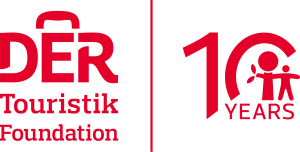Protection of
sea turtles
in Türkiye
Where visitors and turtles play
Survival is a matter of luck
The Turkish Mediterranean coast is a nesting region for three of the seven sea turtle species. On the beach of Titreyengöl near the tourist hotspots of Antalya and Side, there is a nesting beach for the loggerhead turtle and the green sea turtle, which has not yet been officially declared a nesting zone.
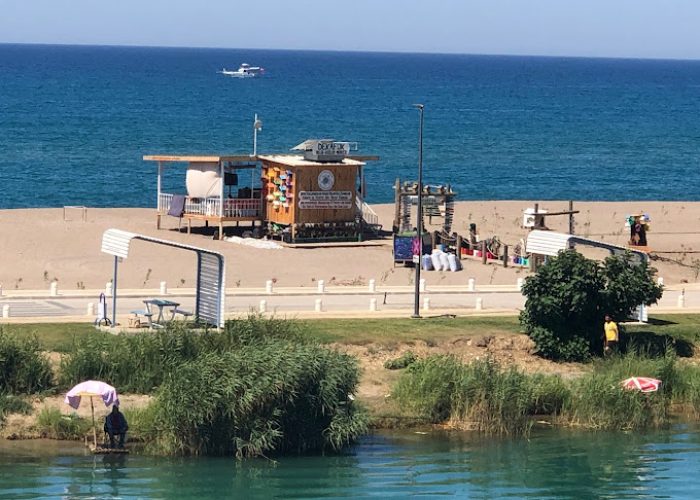
Copyright: DEKAFOK Association Antalya
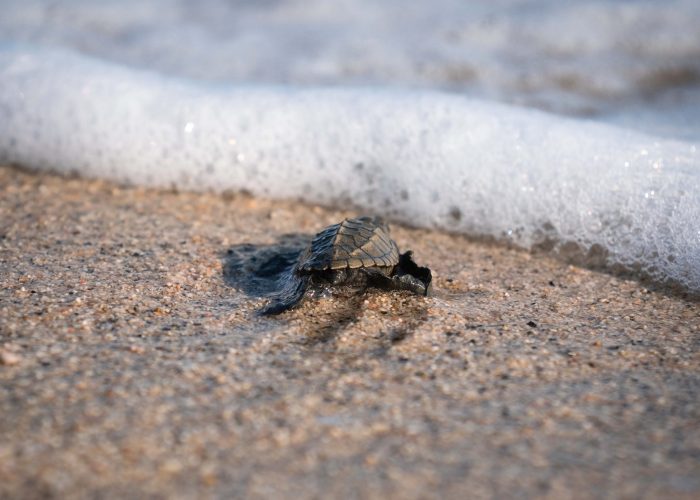
The turtle nesting and hatching season, from May to September, is the most popular time of year for sun-seekers to visit the Turkish Mediterranean beaches. 400,000 tourists visit the area centred on the 9 kilometre stretch of coastline where the turtles nest each year.
The shoreline is full of dangers
The threats to turtles begin as they lay their eggs. Mother turtles will return to the water with their eggs if they feel threatened on the beach, are agitated by noise, or notice
tourists taking pictures disrupting the natural laying cycle. Even when egg-laying is successful the nests are still at risk.
They can be destroyed by fires on the beach, fishing lines, hooks, and nets that wash up on the shore, as well as by parasols in the sand. Newly hatched infants may also struggle to break through the compacted sand as a result of high tourist footfall and perish in the ground.
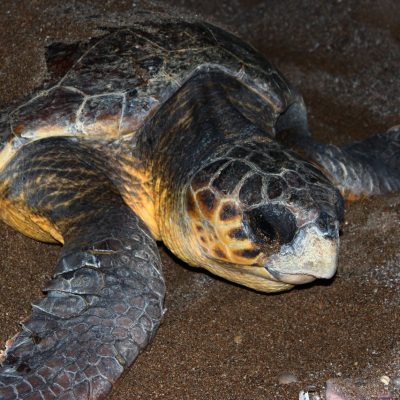
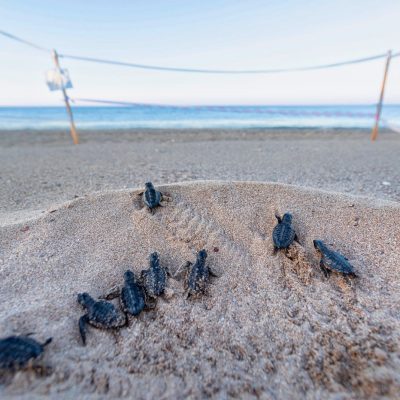
The shoreline is full of dangers
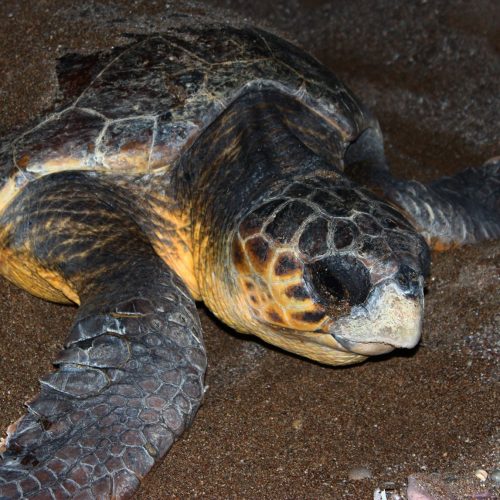
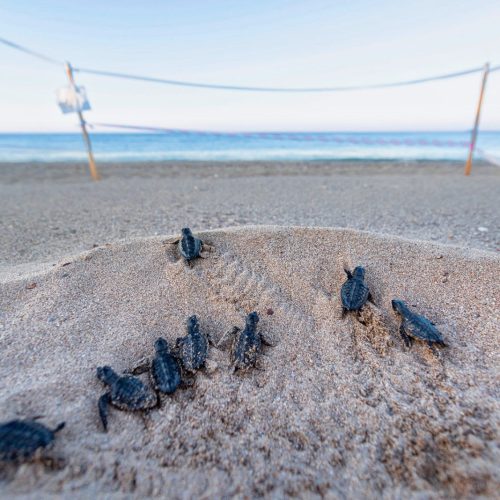
The threats to turtles begin as they lay their eggs. Mother turtles will return to the water with their eggs if they feel threatened on the beach, are agitated by noise, or notice
tourists taking pictures disrupting the natural laying cycle. Even when egg-laying is successful the nests are still at risk.
They can be destroyed by fires on the beach, fishing lines, hooks, and nets that wash up on the shore, as well as by parasols in the sand. Newly hatched infants may also struggle to break through the compacted sand as a result of high tourist footfall and perish in the ground.
Turtles typically hatch at night. They navigate by the moonlight as they make their way to the water but light pollution from bars, restaurants, and shops causes the animals to become disoriented and wander aimlessly on the beach.
All these factors decimate the population of these already endangered species. Voluntary measures by the community, such as beach patrols or information and education work for hotel staff and tourists, have so far provided little relief.
What the DER Touristik Foundation is doing
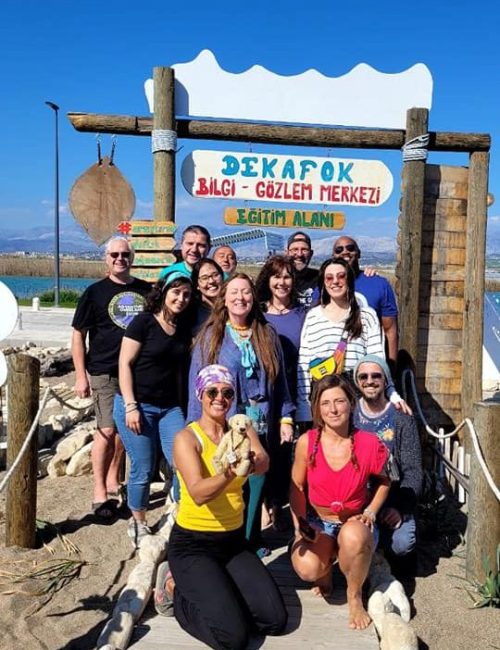
Copyright: DEKAFOK Association Antalya
Since May 2023, we have been supporting the project partner DEKAFOK, which has already set up an observation and information centre on Titreyengöl beach. With the support of volunteers, the staff carry out daily beach checks during the nesting and hatching phase to check and document both eggs and baby turtles and then protect them with grids and signs.
It is critically important to identify this area as a “sea turtle nesting beach” in order to safeguard the sea turtles enabling a series of unique protective measures to be implemented and securing the ongoing support of volunteers. One significant expense is the lack of accommodations for the helpers.
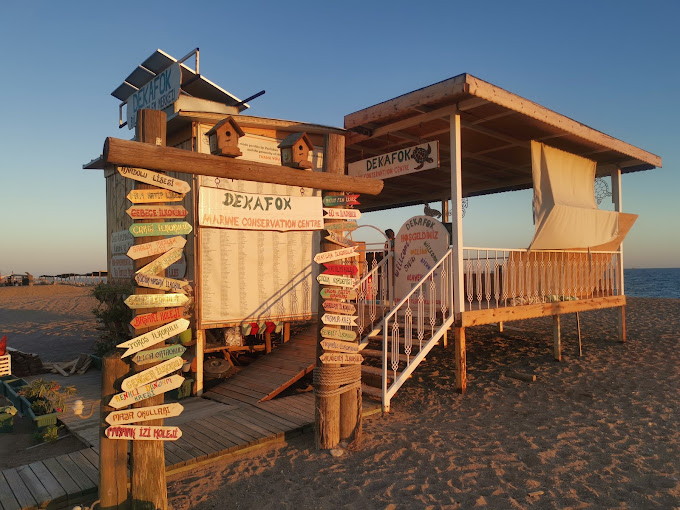
Copyright: DEKAFOK Association Antalya
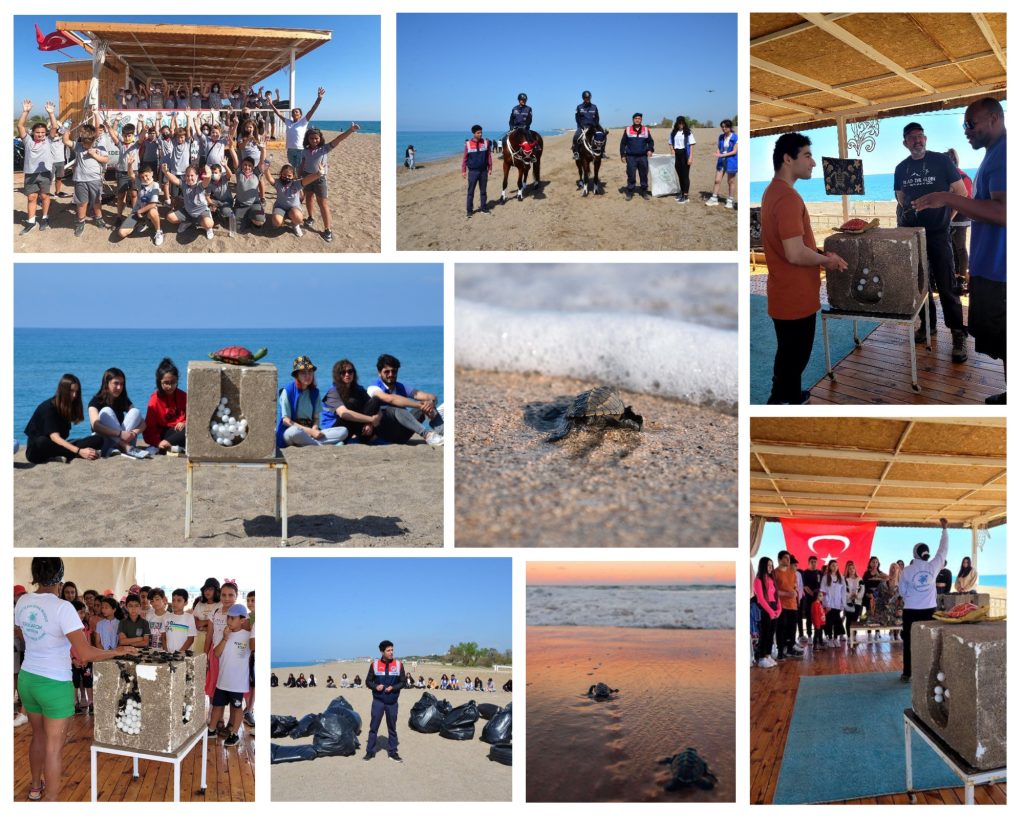
Copyright: DEKAFOK Association Antalya
Our commitment is therefore mainly aimed at:
-
expanding the information centre
-
creating accommodations for the volunteers
-
regular environmental education programmes to raise awareness among the public
The involvement of hotel partners, tourists, schools, associations, etc. not only aims to inform, but also to mobilise as many people as possible for joint
actions such as beach clean-ups.

Copyright: DEKAFOK Association Antalya
Our commitment is therefore mainly aimed at:
-
expanding the information centre
-
creating accommodations for the volunteers
-
regular environmental education programmes to raise awareness among the public
The involvement of hotel partners, tourists, schools, associations, etc. not only aims to inform,
but also to mobilise as many people as possible for joint actions such as beach clean-ups.
Our cooperation partner:
DEKAFOK
Since 2020, this non-profit organisation has been working to contribute to the conservation of natural habitats on the Turkish Mediterranean coast through protection, education and research. To this end, DEFAKOK works together with a team from the University in Akdeniz. DEKAFOK is an acronym composed of
the Turkish names for sea turtle, Mediterranean seal and sand lily – all endangered species.
